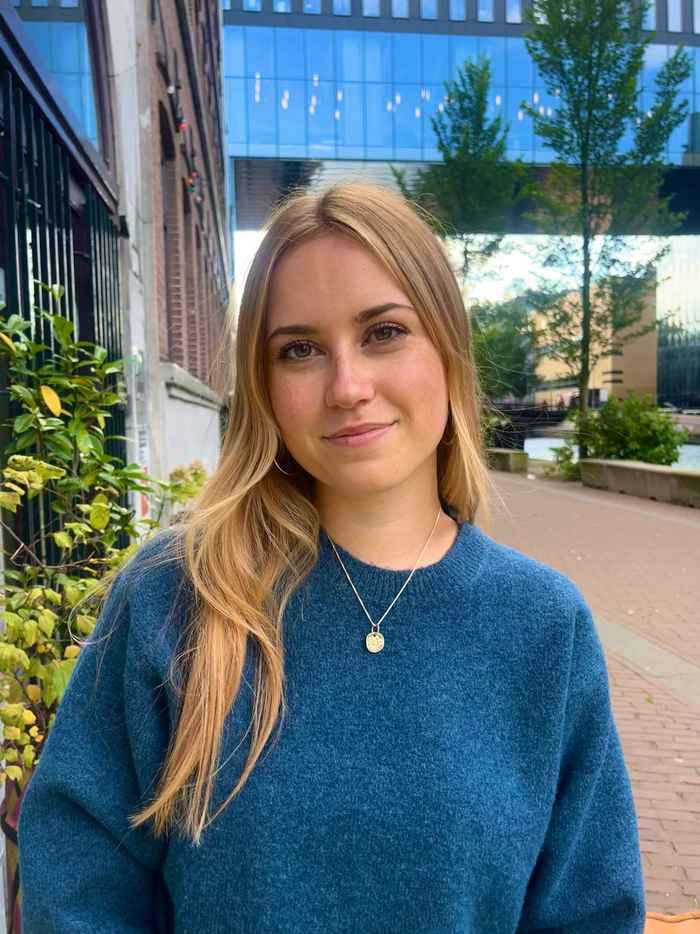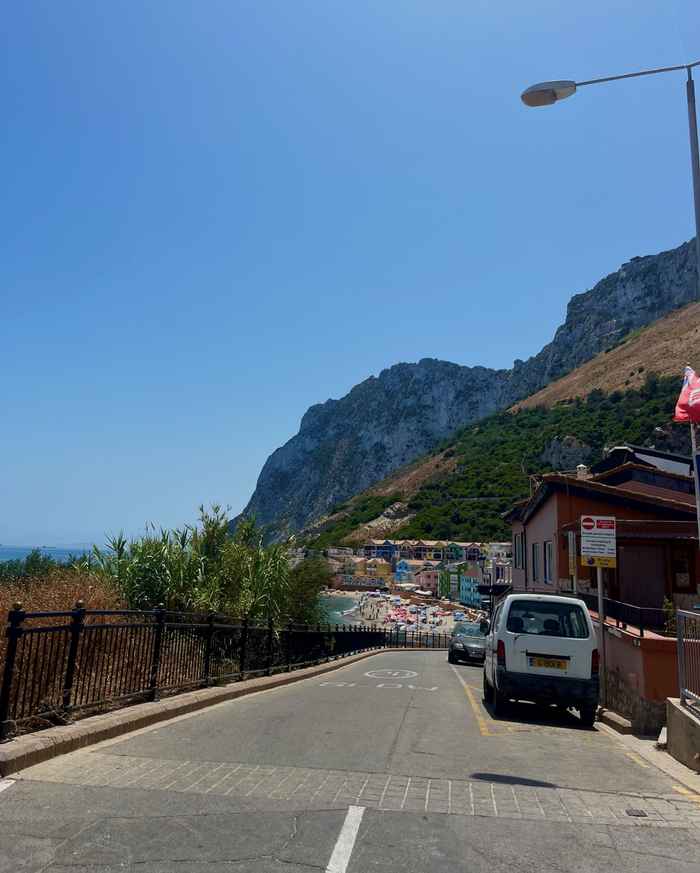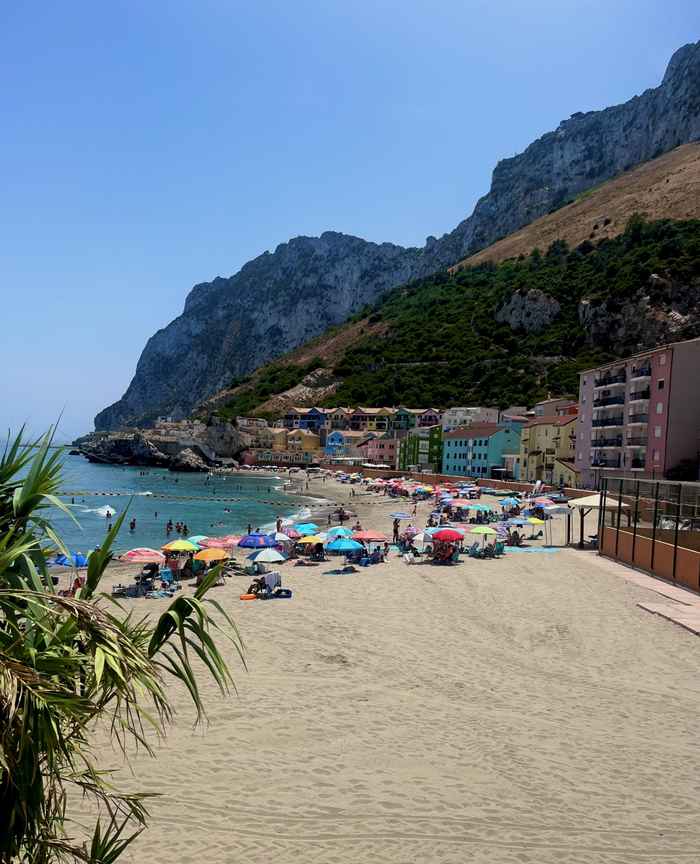'Gibraltar started out as a simple study project, but it became the direction for my thesis and my fieldwork.'
Lotte about her research project in Gibraltar

First impressions
When I first heard that we had to go abroad in the second year of my studies, I honestly thought: do I have to? I wasn’t sure if I wanted to go. Many students were excited, but I wasn’t convinced yet. Two weeks away, a new place… what if I didn’t like it?
That changed after the presentation in February. There were four or five possible research locations abroad, and each one was explained. Then Gibraltar appeared on the PowerPoint: a border that had once been closed, and an old photo of families calling to each other from different sides of the fence. That image really touched me, and I knew straight away: this is where I want to go. While most people chose Barcelona or Colombia, I wrote down Gibraltar as my first choice.
I just knew: that’s where I want to go.
In the end, I joined a group with three friends and a girl from my programme I had never really spoken to. We turned out to get along really well. That made the whole experience even better, and from the first day I felt at ease.
Research at the border
Everything was well organised by the university. We stayed in a hotel right next to the border, within walking distance of Gibraltar. We crossed the border every day, and that was already a special experience.
Our group research focused on how people reacted when the border was closed, and on the differences between generations: how young and older people in Gibraltar think about identity, culture, and Brexit. We found that age really shapes how people feel connected to Gibraltar and to the United Kingdom.
Gibraltar is a mix of everything. It is part of the UK, but it sits right next to Spain. People speak English, Spanish, and “Llanito”, which is a mix of the two. That already shows how unique the culture is.

Older generations, who still remember the closed border, often see their British identity as something that protected them in difficult times. Because of that, they sometimes still feel unsure about Spain. Younger generations, who grew up with open borders, the internet, and globalisation, also feel British and Gibraltarian, but in a more practical way: an identity that gives them chances and freedom.
I remember one older man saying proudly: “I love my Queen.” That moment showed how strongly history, memory, and identity are linked in Gibraltar.
The project was very intense. We had interviews every day: with government officials, with a Spanish trade union (with an interpreter when needed), and even with the president of Gibraltar. We also had three tours of the city and could ask questions to local planners. Everything was tightly organised, but it still felt very free.
I found Gibraltar a very special place. The atmosphere created by the mix of cultures, the Mediterranean Sea and the Rock is hard to describe, but when I came home, I immediately wanted to go back.
Returning to Gibraltar
A few months later I thought: you know what, I’ll just go. I had no plans or appointments; I just wanted to see what would happen. I booked a small trip, and when I arrived, I looked for the local government office. At the desk they asked if I had an appointment, and I didn’t. But even though I came unannounced, one of the planners we had met during the project came out of a meeting to talk to me.
We spoke about my interest in the earlier research, and about the idea of an internship or fieldwork. At first it didn’t seem possible, but then they said that if I organised a few things myself, it could work. Later that week, I even met two other planners by chance in a café. That was great, and they also gave me advice for my ideas.
That’s how my plan began: I wanted to write my thesis on Gibraltar and do fieldwork there. My lecturer Federica immediately offered to supervise me, and everything fell into place.

The study programme that suits me
Human Geography and Planning simply fits me. I took a gap year because I didn’t know what I wanted. Then I thought about what I liked in secondary school (French and geography) and visited the open day at the University of Amsterdam. I knew straight away: this is interesting. I enrolled and have never regretted it.
What I like about the programme is that it connects everything: space, politics, society, and people. In Human Geography, you look at people’s behaviour, how groups organise themselves, what identity means. Planning is more about shaping space: infrastructure, energy, water, sustainability. I find the mix of the social and the spatial really interesting.
I’m now doing a minor in Tax Law, something completely different, but fun for a change.
With Planning, you can work almost anywhere: at local governments, ministries, international organisations or even in politics. It fits my interests because the topics between people and space are so broad.
If you keep walking in the direction that feels right, the next stepping stones will appear by themselves.
Dedication
I never planned to return to Gibraltar to do my own research for my thesis. I think it’s always a good idea to keep trying new things, and sometimes take a jump into the unknown. Follow your intuition, and just do your best. If you don’t ask, the answer is always no.